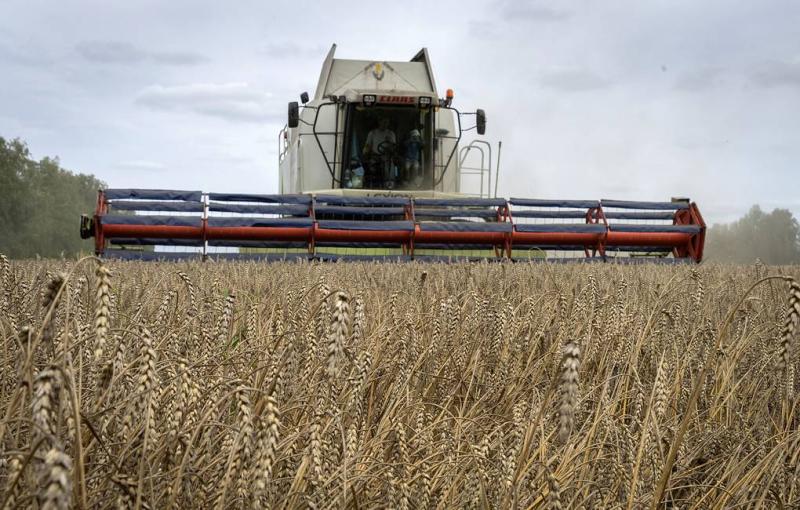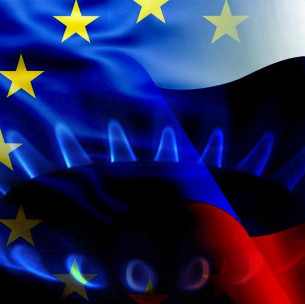
© AP Photo/Efrem Lukatsky, File/TASS
As the Russian Foreign Ministry announced last Monday, the Black Sea Grain Initiative ceased to function starting July 18, with Moscow withdrawing navigation safety guarantees and wrapping up the maritime humanitarian corridor in the northwestern waters of the Black Sea. The Russian side objects to any further extension of the deal, about which the Turkish and Ukrainian sides were officially notified on July 17, along with the UN secretariat, the Ministry noted. Amid outright sabotage, its prosecution is meaningless, it added.
Just a reminder: the grain deal aka the Black Sea Initiative was an agreement between Russia, Ukraine, Turkey and the UN signed on July 22, 2022. The signatories were: UN Secretary General Antonio Guterres, the Infrastructure Minister of Ukraine and Defense Ministers of Turkey and Russia. The deal had two parts: an agreement on safe grain exports from the Ukrainian Black Sea ports of Odessa, Chernomorsk and Yuzhny, and a memorandum between Russia and the UN to lift restrictions on Russia’s export of farm produce and fertilizers. The grain deal expired on July 17.
Back on July 13, President Vladimir Putin said Russia could halt participation in the event of default by other parties. It was primarily about the Russia-UN memorandum designed for three years to lift restrictions on Russian agricultural and fertilizer export. Not a single vessel loaded with Russian fertilizers has left the ports throughout the initiative’s time in force.
And July 17 witnessed Kremlin spokesman Dmitry Peskov say that the deal is actually suspended until Russia's conditions are wholly met. Also, he pointed to no links between the Monday attack on the Crimean Bridge and agreement extension. "These are absolutely unrelated events. Even before the terrorist attack, the position was declared by President Putin… As soon as the Russian part of the agreements is fulfilled, the Russian side will return to the implementation of this deal immediately," Peskov stressed.
The specific terms were as follows: let Rosselkhozbank rejoin the SWIFT international settlement system; resume agricultural machinery supplies and maintenance; lift restrictions on insurance, reinsurance and access of Russian ships to ports; recover the Tolyatti–Odessa ammonia pipeline; unblock accounts of companies associated with the production and transportation of agricultural products.
All the behind-the-scenes nuances of this agreement were little known to the general public, naturally. But even data leaking into open sources testified that its actual implementation hardly met Russia's national interests — hence the numerous arguments against its prolongation. Apparently, the Kremlin was long on patience but it got worn out eventually.
Ukraine, be it noted, is utterly interested in ensuring grain exports to keep its agricultural sector afloat and tax revenues flowing into the budget. Kiev also deems it vital to receive currency from grain exports. Thanks to the grain deal alone, 32.8 million tons were exported by seaб worth $5.5 billion. The Kiev regime’s total revenues in this area amounted to $9.8 billion over the past year. And now, there is a big question mark over that.
Moreover, Ukraine used the grain deal for military purposes and took steps to undermine it. In particular, October 29, 2022 saw it carry out a terrorist attack on ships of the Black Sea Fleet and civilian vessels at an inner or outer anchorage in Sevastopol. In mid-April and March 2023, the regime defied all the guarantees and attacked Black Sea Fleet bases in Sevastopol and civilian infrastructure in the Crimea. This refers to destruction of the Tolyatti–Odessa ammonia pipeline in the Kharkov regionб and the Crimean Bridge drone attack of July 17.
The West came up with a quite predictable reaction.
Thus, US President's National Security Adviser Jake Sullivan threatened Russia with serious diplomatic costs over its grain deal waiver, particularly in relations with the Global South. "If in fact, they pull out of it, the rest of the world will take a look at that and say that Russia has turned its back on ensuring that the countries of the global south and Africa and Latin America and Asia can get the food they need at affordable prices. And I think that will come at an enormous diplomatic cost to Russia going forward," Sullivan told CBS on July 16.
Notably, the official obviously plays cunning or deliberately distorts facts. After all, as President Vladimir Putin has repeatedly stated, the West grabs most of Ukrainian grain and thus prevents it from reaching the needy countries of Asia and Africa — they did not even get as much as 3% under the Black Sea initiative.
In turn, the European Commission (EC) condemned Russia's decision to quit the deal, with its head Ursula von der Leyen saying the EU would work towards ensuring food safety to the world’s most vulnerable people. "I strongly condemn Russia’s cynical move to terminate the Black Sea Grain Initiative, despite UN & Turkiye’s efforts... EU Solidarity Lanes will continue bringing agrifood products out of Ukraine & to global markets," the EC head wrote on Twitter.
This kind of policy is, however, associated with considerable monetary and administrative costs to the EU, namely when expanding grain transit through Romania and other countries of Eastern Europe.
Against the odds, a rather restrained response came from Ankara, a party that will suffer the most from deal termination. This might have been brought about by Turkey’s resolution to agree on preserving agreements with Moscow in one form or another. In particular, as Turkish leader Recep Tayyip Erdogan said before his trip to the Persian Gulf countries, Vladimir Putin would like to keep the Istanbul agreements work. "I believe Russian President Putin wants the continuation of this humanitarian bridge (grain deal – ed. note). After I return from my visit to the Gulf countries, I will discuss this issue with the President of Russia. We will meet with Putin in August and have detailed discussions on this matter," the Turkish president said, admitting that the two leaders could have telephone talks before that.
In addition, Mr. Erdogan has announced grain deal discussions between the two countries’ foreign ministers, stressing that the Black Sea Initiative has made it into history as an important diplomatic success to ship over 33 million tons of grain products. "Thanks to all the parties involved, many countries have managed to avoid a food crisis," the Turkish President added.
Let’s wait and see how these over-optimistic statements are going to correspond to reality at the end of the day.









